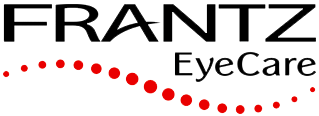Language, especially medical terminology, can act as a barrier to patient understanding. Presbyopia is such a term. Despite the fact that millions of Americans are presbyopes, many will simply say they have “short arms syndrome” and dismiss
the condition as a normal part of aging that is simply to be accepted not knowing there are management options beyond reading glasses. They do not understand how the aging of the lens affects their vision nor are they aware of the surgical or intraocular lens options for managing the condition.
The American Society of Cataract and Refractive Surgery (ASCRS) Foundation undertook a project with Interbrand Health to develop an adjunct term and suggested text for educating patients about presbyopia. The selected term is Age-Related Focus Dysfunction. They wanted to develop a term such that: 1) people, particularly presbyopes, upon hearing it would be able to understand it and intuit its applicability to their own condition; and 2) it had to “medicalize” the condition with the attendant suggestion that presbyopia could be managed or treated medically.
According to local Cataract and LASIK Specialist Jonathan M. Frantz, MD, FACS, medical director of Florida Eye Health, age-related focus dysfunction, or presbyopia, is the inability to focus on nearby objects as a result of the maturation of the eye. “This condition begins to develop as people age, usually 40 years and older,” explained Dr. Frantz. “Unfortunately, it is also progressive and gets worse with time.”
In the young eye, the lens is flexible and is easily bent or flattened by the ciliary muscles. This bending and flattening is performed in order to achieve correct focus. With age, a physiological change makes the lens become stiff and more difficult to bend. The ciliary muscles have trouble moving the lens into the appropriate position to focus on nearby objects. As a result, the patient experiences blurred short-range vision.
Age-related focus dysfunction leads to difficulty with near vision tasks such as reading and close work. Patients are constrained in their routine activities and may also experience headaches or eyestrain from prolonged periods of near-range focusing. Life can be difficult and frustrating without treatment (such as lens replacement surgery, reading glasses, etc.)
“We see a lot of patients at Florida Eye Health who are over age 40 and thus experiencing age-related focus dysfunction,” said Dr. Frantz. “Normally, both your eyes work together equally when you look at an object, to produce what’s called binocular vision. However, for years eye care professionals have dealt with age-related focus dysfunction, by producing monovision with contact lenses. We fit one eye for distance vision (typically the dominant eye) and one for near vision,” explained Dr. Frantz. “After a period of time, the brain adjusts to the difference in perception between the two eyes,” he added.
“Many of our patients over 40 who have had great success with monovision with contact lenses choose to have LASIK laser vision correction to treat their nearsightedness while reducing their dependence on reading glasses,” said Dr. Frantz. “Of course, if someone has cataracts, they have the option of choosing CustomLens multifocal or accommodating lens implants when they have cataract surgery to restore their ability to see at all distances,” he added.
Whatever choices patients make, they must recognize that all age-related focus dysfunction solutions involve some degree of compromise. No currently available corrective lenses or surgical techniques can completely restore the dynamic focusing flexibility their eyes had before age-related focus dysfunction. Being adaptable is the key — and understanding that multiple solutions exist for all over- 40 vision needs.
Dr. Frantz and his medical team offer a broad spectrum of eye care from eye exams and eyewear to cataract removal, glaucoma care, state of the art laser vision correction, and eyelid surgery. Florida Eye Health has five office locations throughout Southwest Florida including Fort Myers, Cape Coral, Punta Gorda, Lehigh Acres and Naples. For more information, call the main office of Florida Eye Health at (239) 418-0999.
###



